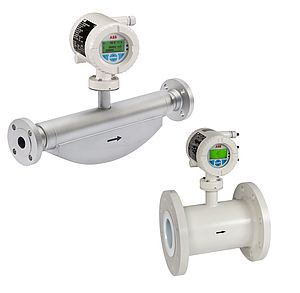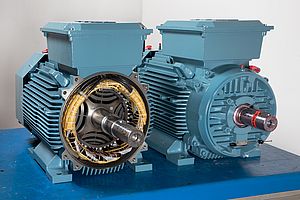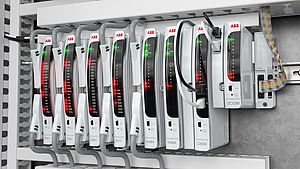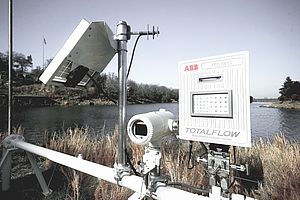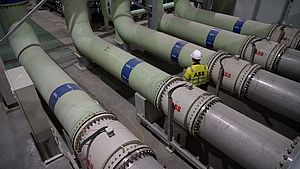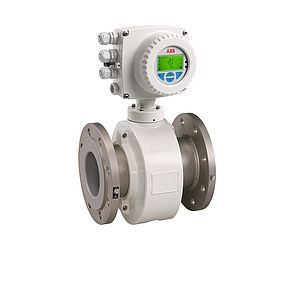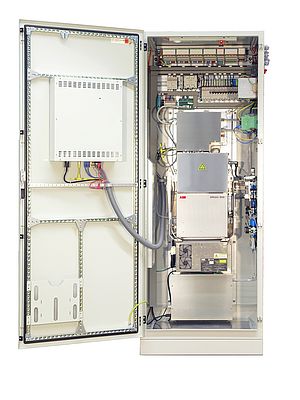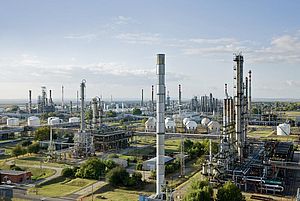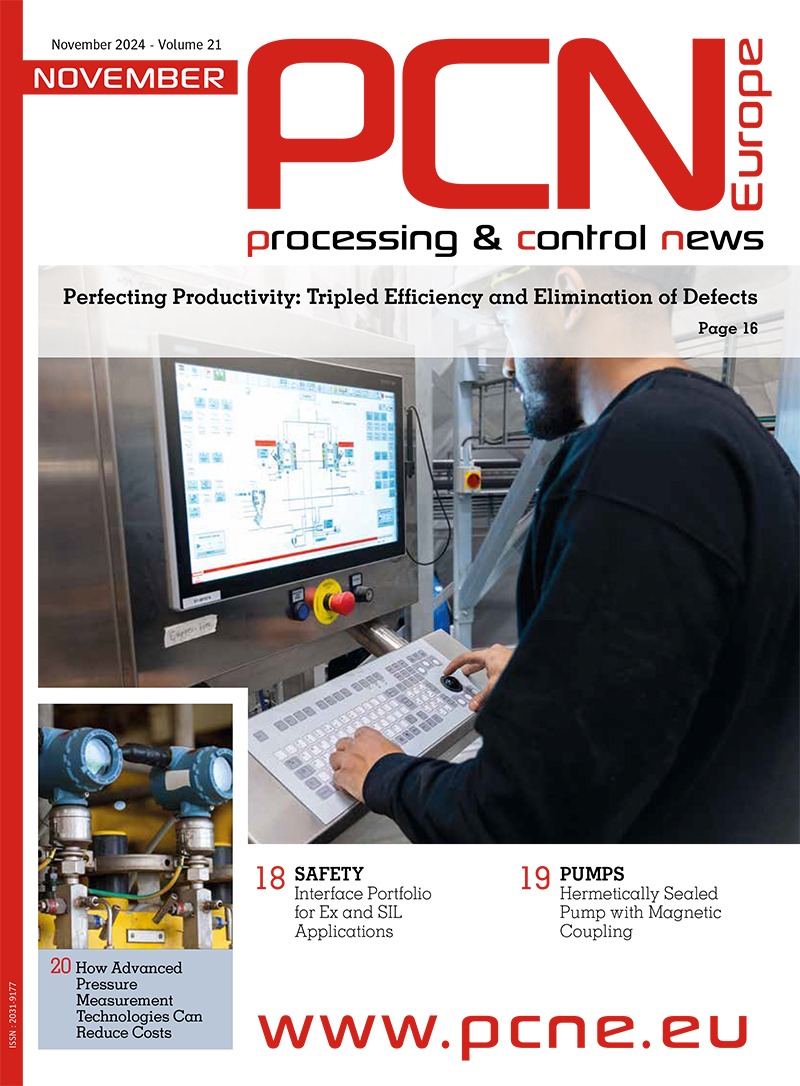These market challenges mean that the industry must – and is – looking to pivot towards more agile operations and to do so must undergo a level of transformation. Integral to this transformation will be a plant’s process automation system. Large-scale automation systems have been at the heart of production line control for decades. They’re paramount to ensuring safety and security of operations and driving efficiency, productivity, and accuracy.
Likewise, through new advances in plug and produce modular automation architecture, process automation will support plants to become more agile and adaptable to changing market demands. Modular process automation will be central to enabling simpler, faster and more flexible production, while also supporting the integration and adoption of Industrial Internet of Things (IIoT) technology and the Industry 4.0 concept.
How modular automation enables agility
For Chemical plants to achieve the level of agility required to meet shorter ‘time to market’ timeframes, among other things, operators are rightly demanding process automation solutions that are more open, interoperable, flexible and evolvable. All without sacrificing reliability, availability, safety and security.
To this end, plug and produce modular automation is taking centre stage. Modular automation refers to an industry-wide effort to move from the engineering of monolithic, strongly intertwined automation systems for the complete production plant, to assembling more flexible, service-oriented modules designed to “plug and produce.”
It breaks down the production process into discrete, self-contained modules that can each be easily connected (plugged) into the larger system and begin operating (producing) with minimal setup and configuration. This separates automation into an evergreen robust core served by a modular architecture, prioritizing real-time response, with an extended, digitally enabled environment that securely connects to IIoT and Industry 4.0 technologies to enhance the collaboration of people, systems and equipment.
Importantly, modularity allows for rapid reconfiguration, upgrades, and integration of new technologies to deliver market demands as soon as they emerge. Because process controller and application software are containerized functional entities, independent of system hardware, they can be flexibly deployed and dynamically available across purpose-built and industrial automation systems, edge devices, on-premises servers and cloud platforms. The Distributed Control Systems (DCS) will evolve to an orchestration system that manages the operation of the modular units.
All this helps operators more easily increase or decrease or adapt production capacity, based on market demand, as they can simply ‘plug and play,’ the necessary modularised automated systems as and when needed.
Modular-enabled automation & Industry 4.0
Plug and produce modular automation is a powerful catalyst for embracing IIoT and Industry 4.0 in all process industries, including Chemicals. A significant challenge however is the lack of standardization and interoperability among various systems and devices.
Modular automation addresses this by adhering to open standards and protocols, ensuring different modules and IIoT devices can communicate effectively. This interoperability reduces the complexity of system integration and enables a more straightforward implementation of advanced technologies, such as artificial intelligence and machine learning. In essence, a cohesive network of interconnected components can be created.
Such an ecosystem will enable faster adoption of new and innovative offerings, while existing applications can be moved to a virtualized, digitally native environment, where advanced cybersecurity tools can be deployed.
Industries can then reap one of the biggest promises of IIoT and Industry 4.0: data analytics. Through the network a vast amount of data can be collected and processed with AI-enabled analytics to gain valuable insights for better decision-making, process optimisation, enhanced safety, and improved overall efficiency. Using modular automation, this can be done without disturbing core control operations.
Considering on average a plant uses approximately less than 20% of the data it generates, harnessing the rest can be transformative for productivity gains and optimisation. In fact, McKinsey & Company estimate that a chemical company with 150 sites, and 10 to 100 processes to optimize could have 1,500 to 15,000 opportunities whose recurring annual cost savings could range from €50 million to €500 million (https://www.mckinsey.com/capabilities/operations/our-insights/buried-treasure-advanced-analytics-in-process-industries).
This data can also help operators deliver faster process implementation and capacity scaling, along with speedier product changeovers to better meet market needs.
The benefits of modular-enabled automation for chemical plants
Although investments into modular process automation systems can be significant, throughout the lifecycle of a chemical plant it can lead to notable cost savings and, in various ways, increase productivity and revenue.
For starters, it can give operators an edge over their competitors. Time to Market is now one of the most important distinguishers between the success and failure of new products. By harnessing the flexibility of modular automation, and the operational intelligence enabled by IIoT, operators can bring their customers product to market the fastest. A simple but important competitor differentiator. It will also help companies leverage new business models and provide news services to their customers, with the support of digital capabilities that can be easily subscribed to when needed. Such choice and adaptability are paramount in a fast-changing world that is susceptible to macroeconomic shocks.
This emerging automation landscape can also help operators achieve their sustainability targets. For example, cloud-hosted continuous emission data analytics solutions can monitor the carbon footprint of a process plant at a granular level and in real time. This will aid plant ESG regulatory compliance. In addition, to lower their environmental impact, AI and data analytics can reconfigure energy inputs and outputs to reduce waste and manage onsite renewable energy and battery-storage investments.
Beyond this, the technologies will usher in a new way of working that is particularly attractive to the workforce of the future. Machine learning and AI will help to identify and mitigate production interruptions, and support remote, autonomous operations, with repetitive and time-consuming tasks automated. This means workers will spend less time troubleshooting and working in physical environments and more time addressing issues remotely. This will lessen the impact of skills shortages and help chemical plants attract a new generation of workers less inclined to take roles in remote locations – and who also expect to work with more modern tools.
What’s more, modular automation systems enhance safety by providing precise control and monitoring capabilities. Real-time data from IoT sensors can be used to detect anomalies and trigger immediate responses, preventing accidents of hazardous waste and ensuring a safer working environment.
Lastly, in the commissioning phase, there is a basic assumption within the industry that the overall engineering effort and cost to build new production sites can be reduced by up to 50% with modular plug and play systems.
Today modular automation is being used in process industries on a small scale, but it’s at the tipping point of much wider adoption. There are challenges, such as skills and knowledge gaps and a need for more standards in equipment and automation and service models, but nevertheless operators can start small with the view to scaling up.
For certain, the future of chemical manufacturing lies in the continued integration of plug and produce modular automation with IIoT and Industry 4.0 technologies. And as advancements in artificial intelligence, machine learning, and big data analytics continue to evolve, modular automation systems will become even more intelligent and autonomous – providing even greater gains.
Author: Axel Haller, Global Industry Business Manager for Chemicals and Life Sciences at ABB.






